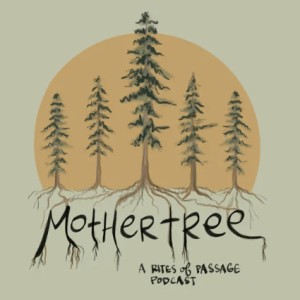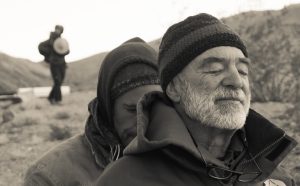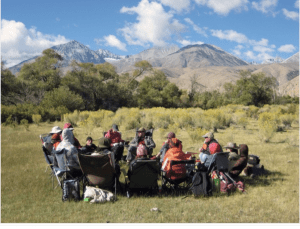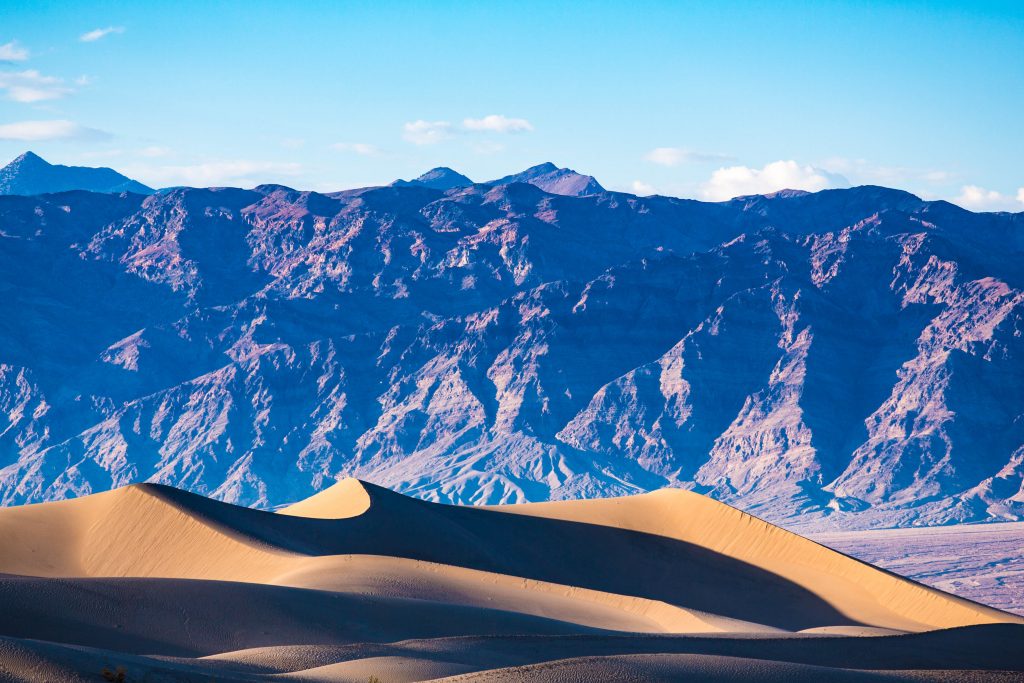
Are You Queer, Different, Odd, Singular, Strange? The Importance of Belonging
Queer: “1. Differing from what is usual or ordinary; odd; singular; strange.”
To belong: “1. To have a proper or suitable place. 2. To be part of; be related or connected (to).”
For the first 42 years of my life—42 of 65—I believed that if ever I were to join a new group, I was certain to be marginalized, if not tossed out altogether. For the first 21 of these years, I was a confused queer kid—too young and too oblivious to understand why it was I always stood on the outside looking in. After I finally came out, I spent the next 21 years with a self-fulfilling prophesy—I’ll never belong—which kept getting confirmed.
To be clear, in one-on-one relationships I’d always done fine. By the time I reached 42, I had many long-term friends and, most importantly, my partner Bill and I already had been together for over 20 years (we’re now at 43 and counting). But groups? To have a proper or suitable place—to be part of; be related or connected (to)? Nope. Never.
That story ended at the age of 42, when I did my first vision fast in Death Valley.
That story ended in the dead of winter under a vast desert sky, cloudless and crystalline blue.
That story ended when I returned from the sacred mountain to a circle of fellow fasters: each of us with a heart-mind-soul as cracked open as that great desert sky.
I’ve been a wilderness guide now for more than 20 years and I’ve guided around 200 programs, long and short. Always my North Star has remained the same: Everyone belongs. When a circle gets called—whoever shows up—everyone belongs. I can’t have it any other way, not after the two starkly different lives I’ve lived. The queer kid who never belonged. The faster who came to know he belonged, absolutely.
Mind you, this unconditional welcoming isn’t always easy, and I don’t always get it right. Some of the people who join a group can be hugely challenging: the ambivalent one, the irascible one, or—most difficult for me—the risk-taking one. A “wild card” is what I’ve come to call an unusually challenging person of any sort. Yes, such a person is part of the hand dealt to me and my co-guide. And yes, their “wildness” means we won’t always know what they will say, how they will behave, or who they will become.
Still, they belong.
Absolutely, they belong.
The North Star.
This interplay between not belonging and belonging has evolved over these last two decades—in large part because of a pirouetting dance done by these two important facets of my identity.
Queer man. Wilderness guide.
Over the years, I’ve become even more fascinated by the dance between the two. This started in earnest six or seven years ago—back when I began co-guiding the occasional program for queer men. One of the places this inquiry has taken me is to look more closely at the emerging cultural practice of having people declare their pronouns near the start of a gathering. Curiously, it took me sitting in the chair of a participant—not that of a guide—for this to start getting clearer. It happened a couple of years ago when I was on a wilderness meditation retreat led by a Buddhist teacher who I love.
On previous retreats, this teacher would always open the week with an Intention Council, just before we would enter Grand Silence. But this time, she also had people say their pronouns. I sat in that council both as a participant and as an interested observer: a queer man with a past history of not belonging. I so appreciated this teacher doing her best to create a safe place for queer folk like me, and yet . . .
The council felt flat, empty, lifeless.
“Hi. My name is Mary. I go by she/her. I’ve come to this retreat in order to . . .” And around the circle it went. Pronouns were perfunctorily named, but nothing more was said about them.
I had this underwhelming sense that all we had done was check a box—look at us, we’re so politically correct—without adding much to the creation of a safe container—not just for queer folk, but for any person at risk of being marginalized. This was fine for a silent meditation retreat, where little more would be said. But what about in a storytelling wilderness circle? I had to wonder.
During the silence of that ensuing week, an idea came bubbling up. Instead of just adding pronouns to the usual opening council of a wilderness program, I wanted to create something new.
“An Identity Council,” I came to call it.
“Tell us your name, where you’re from, the pronouns you use, and also—if you’re willing—name one or two parts of your identity that are up for you this week. This could be about pronouns, gender, or sexual orientation. Could be racial, cultural, or lingual. Could be a role you play, or a belief or practice that feels strong right now. As you enter this week, what part or parts of your identity feel especially present?”
I now have done this opening council four or five times. Each time it’s gone well—or well enough. Once it got a little uncomfortable when one person expressed frustration and anger about this P.C. practice of proclaiming pronouns. “I am who I am,” the person said. “Take me as you see me. That should be enough.” But even then, the group seemed to have been well served. We had made room for differences to be spoken. We had encouraged people to speak from the heart, however edgy. And later, I learned, the group continued the pronoun conversation well after I left the circle.
Over time, I’ve learned better how to introduce this Identity Council. After the introduction described above—name, where from, pronouns, parts of your identity—I tell people I’ll begin the round to help model this invitation.
“My name is Scott. The pronouns I use are he/him. I live in Petaluma, north of San Francisco. There are two identities up for me today. The most obvious: I’m here as a wilderness guide. In this role, I have two major responsibilities. First is to help to keep everyone physically safe. Second is to ensure emotional safety in this circle, too. This call for emotional safety leads me to the second identity that’s up for me today—or any time I’m starting with a new group. I’m a queer man.”
Usually, I’ll say something here about my partnership with Bill—about how blessed I am that he’s at home tending the hearth fire of our shared lives. Then comes my primary message.
“I tell you all that I’m queer because I want to do my best to make this space queer-friendly, queer-safe. But this isn’t just about queer pronouns or queer sexual orientation. I want this circle to be a place where everyone can bring their most vulnerable parts—whatever they might be. Every one of you is queer. Look in the dictionary. Queer means being different, unusual, odd, singular, or strange. So then, what is that makes you different? What is it that makes you feel vulnerable in a circle like this? Whatever that might be, I want this circle to be a safe place for you, too.
“Now I’ll pass the talking piece. Start by telling us your name, your pronouns, and where you’re from. And then, if you’re willing, tell us what parts of your identity are up for you today. Right here, right now.”
And you, dear reader, I ask you these same questions.
As you’ve been reading this, what parts of your own identity have felt especially present?
And what is it that makes you queer, different, odd, singular, strange?
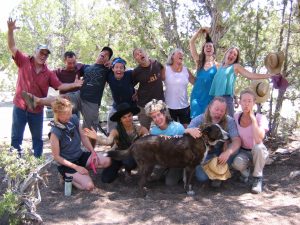
Scott Eberle has been a wilderness guide at the School of Lost Borders since 2003 and at EarthWays LLC since 2020. This coming June, in 2023, Scott, Collin Brown and Paul Browde again will be co-guiding the SOLB program “The Four Directions of a Queer Man.” He also guides a great variety of other programs for all people—however odd, singular or strange they might be.
Share This
Related posts


